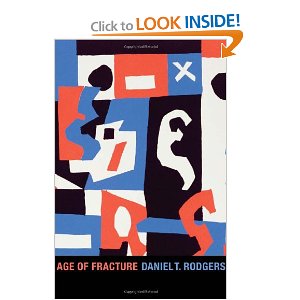
Daniel T. Rodgers
4.0 out of 5 stars An entire book without the words “corruption” or “paradigm failure”,August 19, 2012
I bought this book expecting it to be a six star special, and then was tempted to drop it to three stars for completely missing the point. I've settled on four. It is a brilliant work of scholarship that analyzes varying schools of thought without once connecting to either realities or fundamentals–ethics, for example. I do not mean to be cruel, nor hyperbolize for effect, but as I put the book down it occurred to me that this book is a most extraordinary discussion of the clothes not being worn by the Naked Emperor.
Since those who rave about this book are no doubt the norm — intellectual pedigrees without integrity in the holistic sense — let me preface by brief critical comments by bringing forth the importance of whole systems analytic models, and within those model, the importance of integrity. Integrity is not just about honor — one can be honest on the small things while totally lacking in holistic integrity or social integrity — the extremists within the two-party tyranny that has looted the US treasury certainly fall into this category. While this book speaks to the cost of cultural hegemony, and even the cost of class betrayal from the top down, it never gets to calling a spade a spade, a crook a crook, a failed paradigm a failed paradigm. Kuhn, Morgan, Fuller, and Ackoff would all be disappointed.
Chapter 1 Losing the Words of the Cold War seems oblivious to the military-industrial complex or the fact that both Kennedy and Khruschev had to deal with out of control generals as the greater threat, not one another. Alternative reading:
Vice: Dick Cheney and the Hijacking of the American Presidency
The Pentagon Labyrinth: 10 Short Essays to Help You Through It

